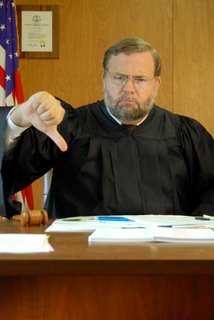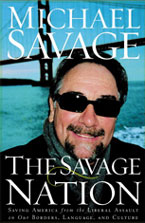 Two prominent New York bloggers are headed to New York’s Court of Appeals as a result of an appellate decision yesterday. One is the defendant. The other is his counsel. And the decision from New York’s high court may impact attorney advertising and its relationship to the First Amendment for years to come.
Two prominent New York bloggers are headed to New York’s Court of Appeals as a result of an appellate decision yesterday. One is the defendant. The other is his counsel. And the decision from New York’s high court may impact attorney advertising and its relationship to the First Amendment for years to come.
Andrew Lavoot Bluestone, who writes the New York Attorney Malpractice Blog, had faxed out copies of his Attorney Malpractice Report to lawyers between 2003 and 2005. The reports were one-page essays on legal malpractice containing information regarding issues and trends in that area. They were subtitled “Free Monthly report on Attorney Malpractice From the Law Office of Andrew Lavoott Bluestone.”
One lawyer didn’t take kindly to the unsolicited faxes and brought suit under the Telephone Consumer Protection Act of 1991, claiming this was an impermissable use of his telephone lines for unsolicited advertising. With penalties of $500 per fax, and 14 faxes sent, that put Bluestone on the hook for $7,000. Plus treble damages for a total of $21,000.
In the trial court, summary judgment was granted against Bluestone and yesterday, in a 3-2 decision, the Appellate Division, First Department affirmed in Stern v. Bluestone. (His defense counsel is a friend, Scott Greenfield of Simple Justice fame.) According to the court, the thing that made these advertisements was that at the bottom of each fax was a box containing Bluestone’s contact information, office address, telephone number, fax number and web site address.
The court noted that, because Bluestone had once before sent out unsolicited faxes and been successfully sued under this statute, that, “as a matter of law, Bluestone willfully and knowingly violated the TCPA.” After losing the prior battle, however, Bluestone altered the fax formats. Whereas they previously stated “Presented by the Law offices of Andrew Lavoott Bluestone, concentrating in Attorney Malpractice Litigation … Inquiries are welcome,” the new ones had deleted those phrases so that they would not be considered advertising.
Moreover, Bluestone claimed that he does not defend attorneys sued for malpractice, but represents those harmed, and that therefore Report is not a solicitation for his services. While he is obviously not opposed to referrals from other attorneys or the enhancement to his reputation in an area of law (who is?), he said that it was never intended to be an advertisement.
He also argued that the Report is a fully protected non-commercial exercise of free speech under the First Amendment.
Now here is the big First Amendment issue: The TCPA prohibition is for an “unsolicited advertisement.” TCPA (47 USC § 227 [a] [4]) defines “unsolicited advertisement” as “any material advertising the commercial availability or quality of any property, goods, or services. . .”
But the court ruled that advertising was prohibited both “directly or indirectly.” It is that “indirectly” issue that seems to be at stake here. This is an invention that does not exist in the statute, and would no doubt run afoul of the First Amendment as being vague and overbroad, catching protected speech within its web.
According to the court:
[W]hile the faxes do not directly offer Bluestone’s services as a legal malpractice attorney, they indirectly advertise the commercial availability and quality of such services. Not only do the faxes invite contact for further information but they also list two web sites that boast Bluestone’s specialization in attorney malpractice suits. Thus, it is clear that the faxes indirectly proposed a commercial transaction and had the effect of influencing recipients to procure Bluestone’s services. (emphasis added)
With a thousand shades of gray between marketing and advertising and between commercial and non-commercial speech, how can a court grant summary judgment against Bluestone? He sent out information that is clearly protected, but which also has his name and contact information on it. According to the dissent, “the content of each fax is almost totally devoted to a commentary on issues involving attorney malpractice and not one contains a single word that can be fairly read as promoting the author’s law practice or inviting the recipient to employ his legal services.” In fact, the dissent also noted that even the plaintiff concedes “that there is no direct solicitation in the message that either constitutes an offer of defendant’s legal services or a comment on them…”
All of this brings up the issue of what constitutes legal advertising and what constitutes marketing, and has direct implications for the legal blogosphere as some use their blogs as advertising vehicles. While some sites, as I have previously noted here, appear to be clear marketing or solicitation to me, the differences between an article written for a magazine that might be seen as marketing and blatant self-promotion that would be seen as advertising, is one of degree. At the very least, a message that is a hybrid of commercial and non-commercial speech is a question for a jury to answer, as shades of gray on the facts do not lend themselves to judges making decisions as a matter of law. At the most, it calls for summary judgment in favor of Bluestone because commercial speech is that which “does no more than propose a commercial transaction” (Bolger v Youngs Drug Products Corp., 463 US 60, 66 [1983], according to the dissent. And Bluestone’s appear to do plenty more.
It seems to me that if the court finds, as a matter of law, that the Report is advertising because Bluestone’s contact information is on it, then every blog that has contact information on it also qualifies as advertising. This would subject all law bloggers to the advertising rules of their state, and possibly others as well.
Since there were two dissenting justices, an appeal lies as of right to New York’s high court. And Greenfield tells me that they are most surely going there with the case. I expect to hear from him on the issue over at Simple Justice.
The New York Law Journal is expected to publish the decision on Monday.
Full Disclosure: Bluestone, Greenfield and I all worked in the same building for a time (different offices) and I know both of them for years. I had, in fact, once helped Bluestone prepare for his own oral argument ten yeas ago in the Court of Appeals for Labarbera v. New York Eye and Ear Infirmary. Both attorneys’ blogs appear in my blogroll to the right.
See also:
————–
Update, 6/11/09: Decision reversed. NY Ct. of Appeals: Attorney Newsletter Not an Advertisement (And What of Blogs?)
 The US Supreme Court denied certiorari today in the fantasy baseball case of Major League Baseball Advanced Media v. CBC Distribution. That dispute had formed the basis of my April Fools Day hoax, claiming that cert had been granted but that a dispute arose when three members of the Court recused themselves due to participation in a fantasy league, and two others did not.
The US Supreme Court denied certiorari today in the fantasy baseball case of Major League Baseball Advanced Media v. CBC Distribution. That dispute had formed the basis of my April Fools Day hoax, claiming that cert had been granted but that a dispute arose when three members of the Court recused themselves due to participation in a fantasy league, and two others did not. The hoax, and the underlying legal and baseball issues of recusal that inspired it, was the subject of a second post: Deconstructing a Fantasy (And Who Was Duped?) The brief order did not mention anyone recusing themselves for participating in a fantasy baseball league.
The hoax, and the underlying legal and baseball issues of recusal that inspired it, was the subject of a second post: Deconstructing a Fantasy (And Who Was Duped?) The brief order did not mention anyone recusing themselves for participating in a fantasy baseball league.


